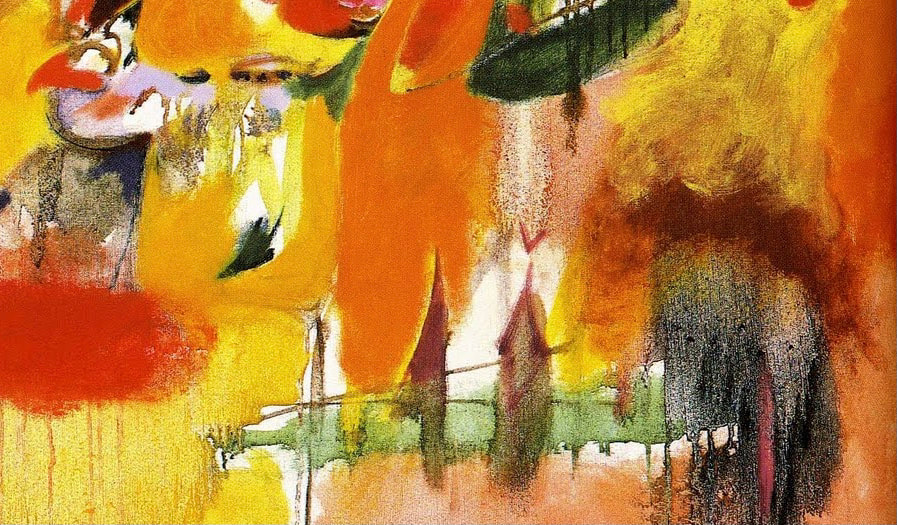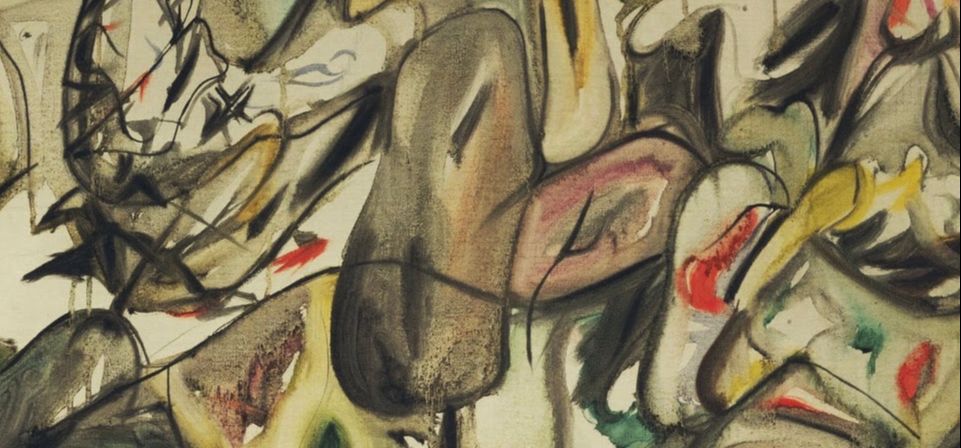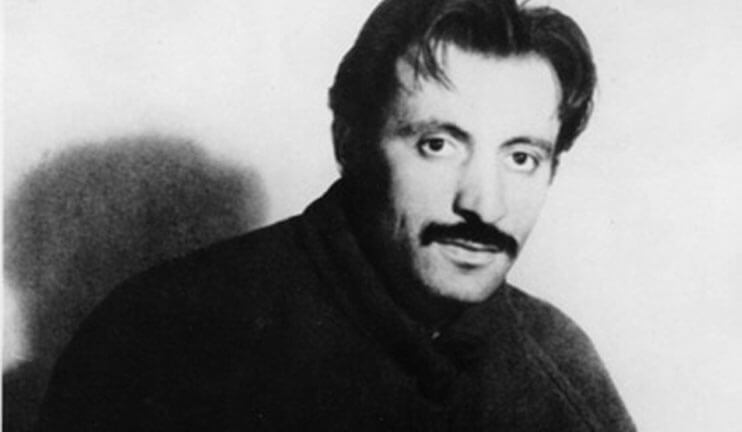|
Detail from Water of the Flowery Mill - Arshile Gorky (1944) For a writer the one thing you must do is write. Reading is vital, thinking beneficial, but where the craft is honed, and where your unique and particular voice takes shape, is in the writing. Stendhal, who scratched at the skin of realism in an age of romanticism, advocated a minimum of “twenty lines a day, genius or not.” Harry Matthews, one of the few Americans to be a member of the OULIPO group (writers and mathematicians who looked for new literary forms, game playing and all), took him at his word. Stendhal’s call to action was an attempt to finish the book he was working on. Matthews “deliberately mistook his words as a method for overcoming the anxiety of the blank page” and ended up producing a fascinating book, 20 Lines a Day, with reflections on writing, raking leaves, phone calls, friendship and much more. Since 2017, the twenty line dictum has driven my writing through the first coffee. This twenty line sprint is one of many ways to get the writing day started. Throughout lockdown, alongside playing a daily writing game exploring form, I combined my desire to write about visual art with this daily sprint. What follows takes off from a line of Arshile Gorky's which I came across in the brilliant biography of this troubled artist, Black Angel by Nouritza Matossian. Gorky, who had escaped the Armenian genocide in 1915, died alone when the weight of circumstance finally overwhelmed him. His work lives on and so does his legacy which shaped American painting from the 1940s onwards. Detail from The Leaf of an Arichoke is an Owl - Arshile Gorky (1944) "One artist could bang his hands against the table and years, even centuries later, another could feel the rhythm." - Arshile Gorky One artist could bang his hands against the table and years, even centuries later, another could feel the rhythm; pulsings, gentle or violent, rippling through a new work, riffing on the driving beat of former melodies to make new meaning. Searching for a voice amidst the vocal outpourings of a lustier or loftier throat calling, follow me, and follow me, until you can find your own path. My footsteps will be tip-tapping in your ear but you will be dancing to your own tune. Drunk with a desire to make you stand upon the table, let that rhythm penetrate your soles. Climbing through shin and groin, your flesh will move to a newborn beat. Beating down the shrill voice that screams all endeavour is meaningless, you will dance, tap out your tune, regardless of whether others will take your hand, your lead, or any notice of you at all. Dance with your body, your body, your life, your heart. Your head left looking backwards as you shimmy into an oiled sunset. The sun also sets you know Hemingway. Its day spent in a descending rhythm that drops into darkness. An empty dance floor that has no light. You can dance in the black of night. A nighttime rhyme of black blackening, blackness. Dressed for death but too much to do before the bony hand leads you away. Life lends you its drumsticks, beat out that tempo, shred skin with your pounding, A pounding that has stolen money from the masters. They wont mind, being dead, but a small breath may touch their cold lips, kissing farewell in the earth’s loam. Thank you. I will dance until I die. One eye kept on you, my still and silent friend. You do not hear it but it will carry me across the dance floor, the maple, the canvas, the country and the strains of this senseless life. I will dance until there is nowhere left to dance on. Your rhythm is ceaseless, like a wave that cannot find a shore. A surefire sound that syncopates the pulse, echoes in my strut, and smothers the canvass’s cries for help. Do not let the paint dry, do not let the stroke end. The end is the edge of existence and paint cannot adhere to nothingness. Dance and drip, smudge, smear and stroke this feeble brain into action, an answer: When will the rhythm fade?
7 Comments
Nick Burge
10/7/2021 08:59:48 pm
Nice one Simon. I have never really looked back since the day I decided I was going to be a dancer. But sometimes I forget just how much it means to me. Thanks for the reminder.
Reply
Simon
10/11/2021 10:10:27 pm
Glad that it jolted the mind and body back together on the dance floor
Reply
John clare
10/9/2021 07:09:49 pm
This is thought provoking Simon. You must have quite a body of work since 2017.all I do is to write quotidian thoughts in a diary each day, really to keep my memory alive. I’m impressed because I know it’s difficult to put words to visual art.
Reply
Simon
10/11/2021 10:47:59 pm
If the writing manages to keep the memory alive then it is truly worthwhile. So quotidian, quirky or reflections on breakfast, in your diary serve a purpose.
Reply
MIL
10/10/2021 06:00:29 pm
A marvellous read Simon and interesting that you are inspired by Gorki. The Armenian genocide giving birth to such geniuses is indeed a case of the Phoenix rising from the ashes of an unspeakable nightmare. A lesser known Armenian painter, Zareh Mutafian, ended his life sadly, but not by suicide. He was obsessive about his birth place and the suffering endured and painted prolifically. It was only after his death that his work became known amongst the Armenian diaspora and his work sold. What tenacity, common to many artists, who ‘dance’ till the end of time.
Reply
Simon
10/11/2021 10:29:27 pm
We must take pleasure in the fact that from the ruins, surviving the repeated barbarity of mankind, art and music continue to be made. Long let us dance, even if sometimes we have to keep our eyes from what we are dancing on.
Reply
Helen Greaves
10/12/2021 03:13:28 pm
I love the dancing and the music imagery but I feel instantly inadequate at the thought of writing 20 lines a day. I agree with John about artists not writing about their own work. My interest in art changes. I return and return but once I feel I've worked it out and I'm able to describe it to myself, it loses something. Part of my engagement with it is bodily and emotional and the intellect gets in the way. I read quite a bit of poetry. I think because there's less of a barrier between me and the poet and that tension of feeling but not knowing lives for longer.
Reply
Leave a Reply. |
Writing into the dark Read More...
May 2024
Categories |


